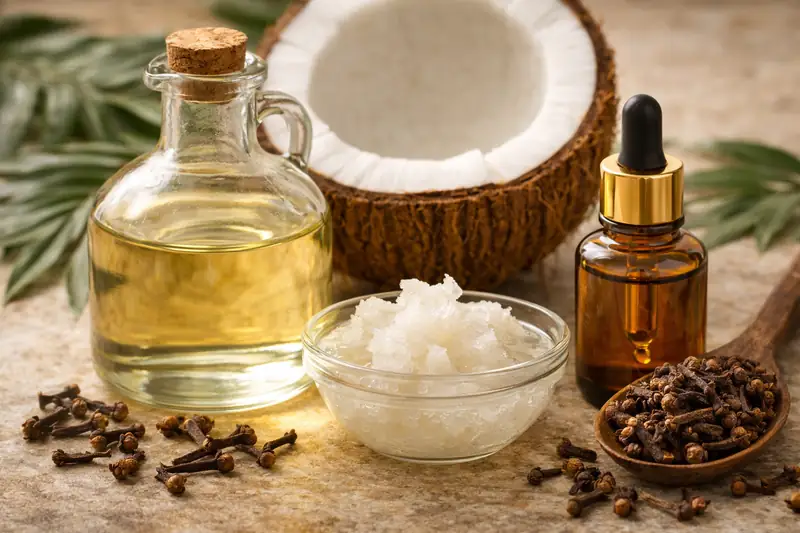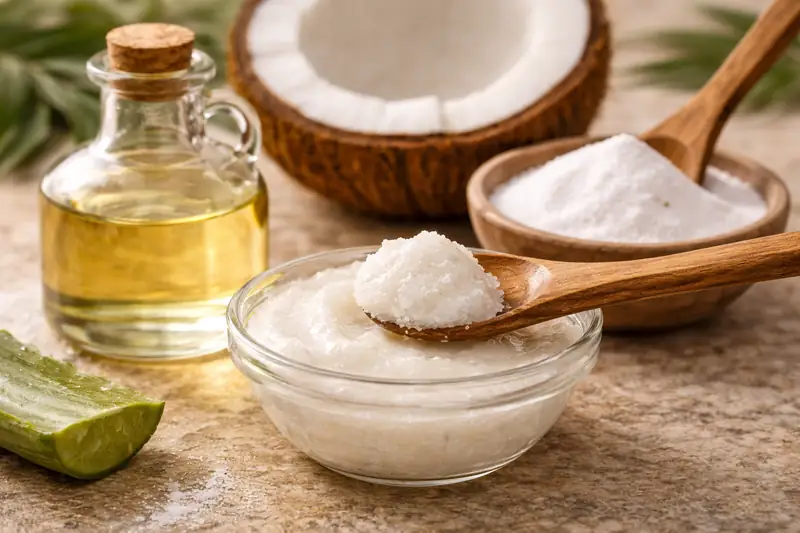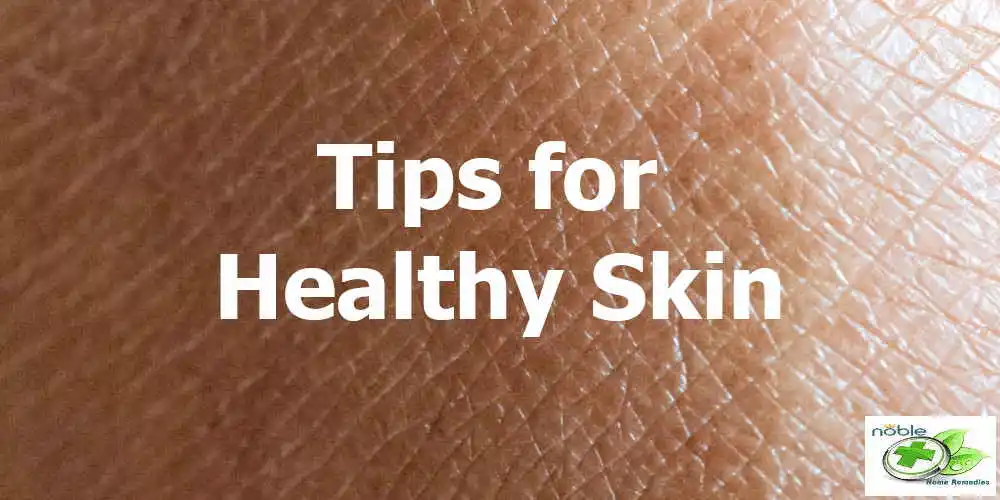Does Coconut Oil Whiten Skin? : Unlock the Secret!
Hey there! Have you ever wondered if coconut oil can actually whiten your skin? I mean, we all know that skin whitening has become increasingly popular in recent times, and everyone is looking for a natural remedy that works. With the internet full of all kinds of claims and advice, it can be hard to know what to believe. That’s where I come in!
In this blog post, we’re going to explore the effectiveness of coconut oil for skin whitening. Yes, you heard it right! We’re going to find out if coconut oil can actually whiten your skin or if it’s just another myth.
So if you’re tired of trying out all kinds of products and still haven’t found the perfect solution for your skin, then keep reading! By the end of this post, you’ll have a clear understanding of whether or not coconut oil is a good option for skin whitening, and you might even be surprised by what you learn!
What is Coconut Oil?
Let’s get down to the basics – what exactly is coconut oil, and how does it work for skin whitening?
Coconut oil is a natural oil that is extracted from the meat of mature coconuts. It’s a popular ingredient in many natural remedies due to its numerous health benefits. The oil is composed of medium-chain fatty acids, which are believed to have unique health properties.
But what makes coconut oil so special when it comes to the skin? First and foremost, coconut oil is an excellent moisturizer for the skin. It’s easily absorbed into the skin, making it a great option for those with dry or sensitive skin. Additionally, it contains lauric acid, which is known for its antibacterial and anti-inflammatory properties.
When it comes to skin whitening, coconut oil is believed to have a brightening effect on the skin. This is because it contains vitamin E, which helps to lighten dark spots and even out the skin tone. Coconut oil also helps to protect the skin from harmful UV rays, which can cause damage and lead to uneven skin tone.
Overall, coconut oil is a versatile natural ingredient that can offer numerous benefits to the skin, including moisturizing, anti-inflammatory, peeling skin, dead skin, and brightening properties. So if you’re looking for a natural remedy for skin whitening, coconut oil might just be the perfect solution!
Really, Does Coconut Oil Whiten Skin?

Alright, let’s tackle the big question: Does coconut oil actually whiten skin?
Firstly, it’s important to understand the science behind skin whitening. The skin gets its color from a pigment called melanin, which is produced by specialized cells in the skin. Melanin production is influenced by various factors such as genetics, UV exposure, and hormones.
When it comes to skin whitening, the goal is to decrease the production of melanin or reduce the amount of melanin in the skin. There are several ingredients that are believed to have a skin-lightening effect, such as hydroquinone and kojic acid. But what about coconut oil?
Research suggests that coconut oil may indeed have a brightening effect on the skin. A study published in the Journal of Cosmetic Science found that virgin coconut oil was effective in reducing melanin production in skin cells. Another study published in the International Journal of Cosmetic Science found that a cream containing coconut oil and other natural ingredients improved skin lightening in subjects with hyperpigmentation.
It’s important to note, however, that the effectiveness of coconut oil for skin whitening may vary depending on factors such as the individual’s skin type and the concentration of coconut oil used. While some studies have shown promising results, more research is needed to fully understand the potential of coconut oil for skin whitening fully.
So, to answer the question, yes, coconut oil may have a skin-whitening effect based on the available evidence. However, it’s important to use it in moderation and as part of a balanced skincare routine, and to keep in mind that individual results may vary.
Does coconut oil darken skin? There is no scientific evidence to suggest that coconut oil darkens the skin.
How to Use Coconut Oil for Skin Whitening?
If you’re interested in using coconut oil to achieve a brighter complexion, there are some tips to keep in mind to get the best results. Here’s how to use coconut oil for skin whitening:
- Cleanse your skin: Before applying coconut oil, it’s important to cleanse your skin to remove any dirt or impurities. This will ensure that the coconut oil can penetrate the skin and work its magic.
- Apply coconut oil: Once your skin is clean and dry, take a small amount of coconut oil and gently massage it into your skin. It’s best to start with a small amount and gradually add more as needed.
- Leave it on: Unlike some other skin-lightening ingredients that need to be rinsed off after a certain amount of time, coconut oil can be left on the skin for an extended period. You can leave it on overnight or for several hours during the day.
- Be consistent: Consistency is key when it comes to seeing results with coconut oil. You may need to use it consistently for several weeks or even months to see a noticeable difference in your skin tone.
You may use lemon and coconut oil on your face overnight for skin whitening.
Maximize the effectiveness of coconut oil for skin whitening
To maximize the effectiveness of coconut oil for skin whitening, here are some additional tips:
- Use high-quality coconut oil: Look for organic, virgin coconut oil that has not been refined or processed. This will ensure that you are getting the purest form of coconut oil, which is packed with skin-loving nutrients.
- Incorporate other skin-brightening ingredients: While coconut oil can be effective on its own, you may want to consider combining it with other natural ingredients that are known for their skin-brightening properties. Some examples include lemon juice, turmeric, and honey.
- Protect your skin from the sun: UV exposure can worsen hyperpigmentation and make it harder to achieve a brighter complexion. To protect your skin, always wear sunscreen and limit your time in the sun.
By following these tips, you can use coconut oil to potentially achieve a brighter, more even skin tone. However, keep in mind that individual results may vary, and it’s always a good idea to consult with a dermatologist before trying any new skincare routine.
Potential Risks and Side Effects
When it comes to natural remedies, coconut oil is a popular choice for skin whitening. However, as with any treatment, there are potential risks and side effects that should be considered. In this section, we’ll explore the potential risks and side effects of using coconut oil for skin whitening, and provide some safety precautions and warnings.
Firstly, it’s important to note that coconut oil is generally safe for external use on the skin. However, some people may experience allergic reactions, such as itching or hives, when using coconut oil. If you have a coconut allergy or sensitivity, it’s best to avoid using coconut oil for skin whitening.
Another potential risk associated with using coconut oil for skin whitening is the risk of acne. Coconut oil is a comedogenic oil, which means that it has the potential to clog pores and lead to breakouts. If you have acne-prone skin, it’s best to use coconut oil sparingly and to patch test before applying it to your face.
Additionally, coconut oil may not be suitable for all skin types. Those with oily skin may find that coconut oil exacerbates their oiliness and leads to even more shine. Conversely, those with dry skin may find that coconut oil doesn’t provide enough hydration and leaves their skin feeling even drier.
To minimize the potential risks and side effects of using coconut oil for skin whitening, it’s important to follow some safety precautions. Always patch-test a small area of skin before applying coconut oil to your face or body. This will help you determine if you’re allergic or sensitive to coconut oil. Additionally, use coconut oil in moderation and avoid using it on broken or irritated skin.
Overall, while coconut oil can be an effective natural remedy for skin whitening, it’s important to be aware of the potential risks and side effects associated with its use. By following some simple safety precautions, you can safely and effectively use coconut oil to brighten and even out your skin tone.
The Ultimate Natural Duo for Youthful, Brighter Skin – Coconut Oil and Clove

Combining clove oil with coconut oil creates a potent natural remedy that targets both the physical signs of aging and uneven skin tone. This combination works by utilizing the antioxidant power of cloves and the deep moisturizing capabilities of coconut oil to rejuvenate the skin.
Benefits for Wrinkles and Brightening
- Anti-Aging & Collagen Support: Clove oil is rich in eugenol, a compound that helps restore collagen levels and improve blood circulation. This process tightens sagging skin and reduces the appearance of fine lines and wrinkles.
- Melanin Regulation for Whitening: Research suggests eugenol may inhibit tyrosinase, an enzyme essential for melanin production. By modulating this enzyme, the mixture helps fade dark spots, hyperpigmentation, and acne scars, leading to a brighter, more even complexion.
- Deep Hydration: Coconut oil acts as a carrier that locks in moisture, preventing the dryness that often makes wrinkles look more pronounced.
- Natural Exfoliation: The mixture has mild exfoliating properties that remove dead skin cells, revealing fresh, younger-looking skin beneath.
DIY Turmeric and Gram Flour Face Pack for Radiant Skin
Get glowing skin on a budget! This DIY Ayurvedic skincare remedy uses just turmeric and gram flour for a brighter complexion. Follow this quick step-by-step tutorial below
Ingredients:
- 2 tablespoons of gram flour (besan)
- 1/2 teaspoon of turmeric powder
- 1 tablespoon of yogurt or milk (for added moisture)
- A few drops of lemon juice (optional, for skin lightening)
Preparation and Application:
- In a bowl, mix the gram flour and turmeric powder.
- Add yogurt or milk to form a smooth paste.
- If desired, incorporate a few drops of lemon juice.
- Apply the paste evenly to your face and neck, avoiding the eye area.
- Let it sit for 15-20 minutes or until it dries.
- Gently rinse off with lukewarm water, massaging in circular motions.
- Pat your skin dry and follow up with a moisturizer.
DIY Skin-Brightening Serum for Wrinkles
To safely use this combination, it is essential to dilute the potent clove oil into the carrier oil.
- Ingredients: Mix 1 tablespoon of virgin coconut oil with 2–3 drops of pure clove essential oil.
- Optional Boost: Add 1 teaspoon of aloe vera gel or a Vitamin E capsule to enhance skin repair and radiance further.
- Application: Gently massage a few drops onto a clean face at night, using upward circular motions. Leave it on for at least 30 minutes or overnight for maximum absorption.
Vital Safety Precautions:
- Never Use Undiluted: Clove oil is extremely concentrated and can cause chemical burns, redness, or severe irritation if applied directly to the skin.
- Patch Test First: Always test the mixture on a small area of your inner arm and wait 24 hours to check for a reaction.
- Sun Sensitivity: Clove oil may increase your skin’s sensitivity to the sun. Always apply a broad-spectrum sunscreen the following morning.
- Frequency: Use this treatment only 2–3 times per week to avoid over-sensitizing the skin.
Deep Cleanse & Glow with Baking Soda Combination

Combining coconut oil and baking soda is a popular DIY treatment aimed at achieving a smooth, radiant complexion through deep exfoliation and intense hydration. While it can help brighten a dull complexion, this mixture is highly potent and requires careful application to avoid damaging your skin’s natural barrier.
Benefits for Brightening and Texture
- Physical Exfoliation: Baking soda acts as a mild abrasive that sloughs away dead skin cells and unclogs pores. Removing this surface debris can instantly make the skin look more radiant and polished.
- Improving Skin Texture: Regular exfoliation helps improve skin texture and reduce the appearance of acne scars over time by promoting faster cell turnover.
- Moisture Seal: Coconut oil, rich in lauric acid and Vitamin E, penetrates deeply to hydrate the skin and lock in moisture, preventing the “tight” feeling that often follows exfoliation.
- Antibacterial Action: Both ingredients possess natural antimicrobial properties, which can help reduce the bacteria that contribute to acne and uneven skin tone.
DIY Facial Scrub Recipe
For the best results, use this mixture as a gentle treatment rather than a daily wash.
- The Mix: Combine 1 tablespoon of virgin coconut oil with 1 teaspoon of baking soda.
- Application: Gently massage the paste onto your clean face using light, circular motions for 1–2 minutes. Avoid the sensitive eye area.
- Rinse: Wash off thoroughly with lukewarm or cool water and pat dry.
Vital Safety & Precautions
- pH Balance Warning: Baking soda is highly alkaline (pH 9), while your skin is naturally acidic (pH 4.5–5.5). Overuse can strip your skin’s “acid mantle,” leading to extreme dryness, irritation, or even breakouts.
- Frequency: Limit this treatment to once or twice a week.
- Patch Test: Always perform a patch test on your jawline or inner arm 24 hours before full application to check for adverse reactions.
- Post-Treatment Care: Always follow up with a gentle moisturizer and apply sunscreen daily, as exfoliation makes your skin more vulnerable to UV damage.
Other Natural Remedies for Skin Whitening
If you’re looking for natural ways to whiten your skin, you may be wondering what other options besides coconut oil exist. Fortunately, several other natural remedies are worth exploring.
- Lemon Juice: Lemon juice is a popular natural remedy for skin whitening due to its high vitamin C content, which can help reduce the production of melanin in the skin. It is also a natural exfoliant, which can help to remove dead skin cells and reveal brighter, more even-toned skin.
- Papaya: Papaya contains an enzyme called papain, which can help to break down dead skin cells and reveal brighter, more youthful-looking skin. It is also rich in antioxidants, which can help to protect the skin against damage from free radicals.
- Turmeric: Turmeric is a spice that has been used for centuries in traditional medicine to treat a variety of skin conditions. It contains a compound called curcumin, which has anti-inflammatory properties and can help to reduce the appearance of dark spots and hyperpigmentation.
While coconut oil is a popular natural remedy for skin whitening, it is important to note that it may not be effective for everyone. Some people may find that other natural remedies work better for their skin type or concerns. Experimenting with different natural remedies can help you find the best option for your unique needs.
Takeaway
In conclusion, coconut oil is a popular natural remedy for skin whitening. While there is some evidence to suggest that it may be effective, the results are not guaranteed, and it is important to use caution when applying it to the skin. It is always recommended to do a patch test and consult a dermatologist before trying any new skincare remedies.
If you do decide to use coconut oil for skin whitening, be sure to follow proper application techniques and use it in conjunction with other skincare practices like sun protection and a healthy diet. While there are other natural remedies for skin whitening, coconut oil remains a popular choice due to its moisturizing properties and for overall healthy skin.
Overall, coconut oil can be a valuable addition to your skincare routine, but it should not be relied on as the sole solution for skin whitening. As with any skincare treatment, it is important to approach it with caution and prioritize safety and health above all else.
Source:
Noble Home Remedies adheres to rigorous sourcing standards, drawing information from peer-reviewed studies, reputable academic research institutions, and esteemed medical journals and associations. We prioritize using high-quality, trustworthy sources to maintain the accuracy and integrity of our content. You can learn more about how we ensure our content is accurate and current by reading our editorial policy.
- Does coconut oil reduce melanin? by Calendar-UK.co.uk
- Is coconut oil good for skin whitening? by Legit
- DIY Recipes: Clove Oil for Skin Whitening
https://www.pureoilsindia.com/blog/diy-recipes-clove-oil-for-skin-whitening - Wonderful Benefits of Clove for Skin
https://kayakalpherbals.com/blogs/kulsumsecrets/benefits-of-clove-for-skin - The Benefits of Baking Soda and Coconut Oil for Your Face
https://www.hbnobulk.com/blogs/natural-essential-oils/the-benefits-of-baking-soda-and-coconut-oil-for-your-face
FAQ
How long does coconut oil take to lighten skin
Coconut oil may take several weeks or even months to lighten the skin with regular use. It is important to note that the results may vary depending on individual skin type and the severity of the pigmentation. It is recommended to apply coconut oil on the skin daily and consistently for a period of at least 8-12 weeks to see noticeable results. It is also important to use coconut oil in conjunction with other skin-lightening treatments and to maintain a healthy skincare routine to achieve optimal results.
How to use coconut oil to whiten skin?
To use coconut oil for skin whitening, it is recommended to apply it to the skin and leave it on for at least 30 minutes before washing it off. Some people also mix it with other natural ingredients, such as lemon juice or honey, to enhance its effects.
Can I use coconut oil for skin whitening overnight?
Yes, you can use coconut oil for skin whitening overnight, but it is important to proceed with caution. Coconut oil can clog pores and cause breakouts in some people, so it is important to patch test before applying it to your entire face overnight. To use coconut oil for skin whitening overnight, simply apply a small amount to your face and neck, avoiding the eye area, before going to bed.
What oil is best for skin whitening?
Commonly recommended for skin whitening include coconut oil, almond oil, olive oil, and jojoba oil. These oils contain natural compounds that can help to lighten dark spots and even out skin tone over time. It is important to do a patch test before using any new oil on your skin to ensure that you are not allergic or sensitive to it.
Additionally, it is important to remember that using oil alone may not be enough to achieve significant skin whitening results, and a comprehensive skincare routine that includes sunscreen, exfoliation, and other treatments may be necessary for the best results.
Trust in your purchase:
Every product featured on our site has been carefully researched and selected based on quality, customer ratings, and positive reviews to ensure you receive excellent value for your money.
Please note:
This post contains affiliate links. If you make a purchase through these links, we may earn a small commission at no additional cost to you. This helps support our site and allows us to continue bringing you valuable content. Thank you!
Thank you for your precious time spent with NobleHomeRemedies.
You may also like:
How to Stop Popping Pimples
How to Stop Popping Pimples – 7 Ways: A Complete Guide We’ve all been there…
Banana Natural Botox
Banana Natural Botox: Explore – Clear Wrinkles and Crow’s Feet in 7 Steps We’ve all…
Jojoba Oil vs. Others
Jojoba Oil vs. Others: Which is Best for Skin: 5 Top Oils Natural oils have…
How Long Does It Take for Pimples to Go Away
How Long Does It Take for Pimples to Go Away: Ultimate Guide Pimples, oh pimples!…
Tips for Healthy Skin
10 Tips for Healthy Skin – All Natural and Easy If you want to maintain…
Benefits of Jamaican Black Castor Oil
Benefits of Jamaican Black Castor Oil: What You Need to Know Castor oil has been…






